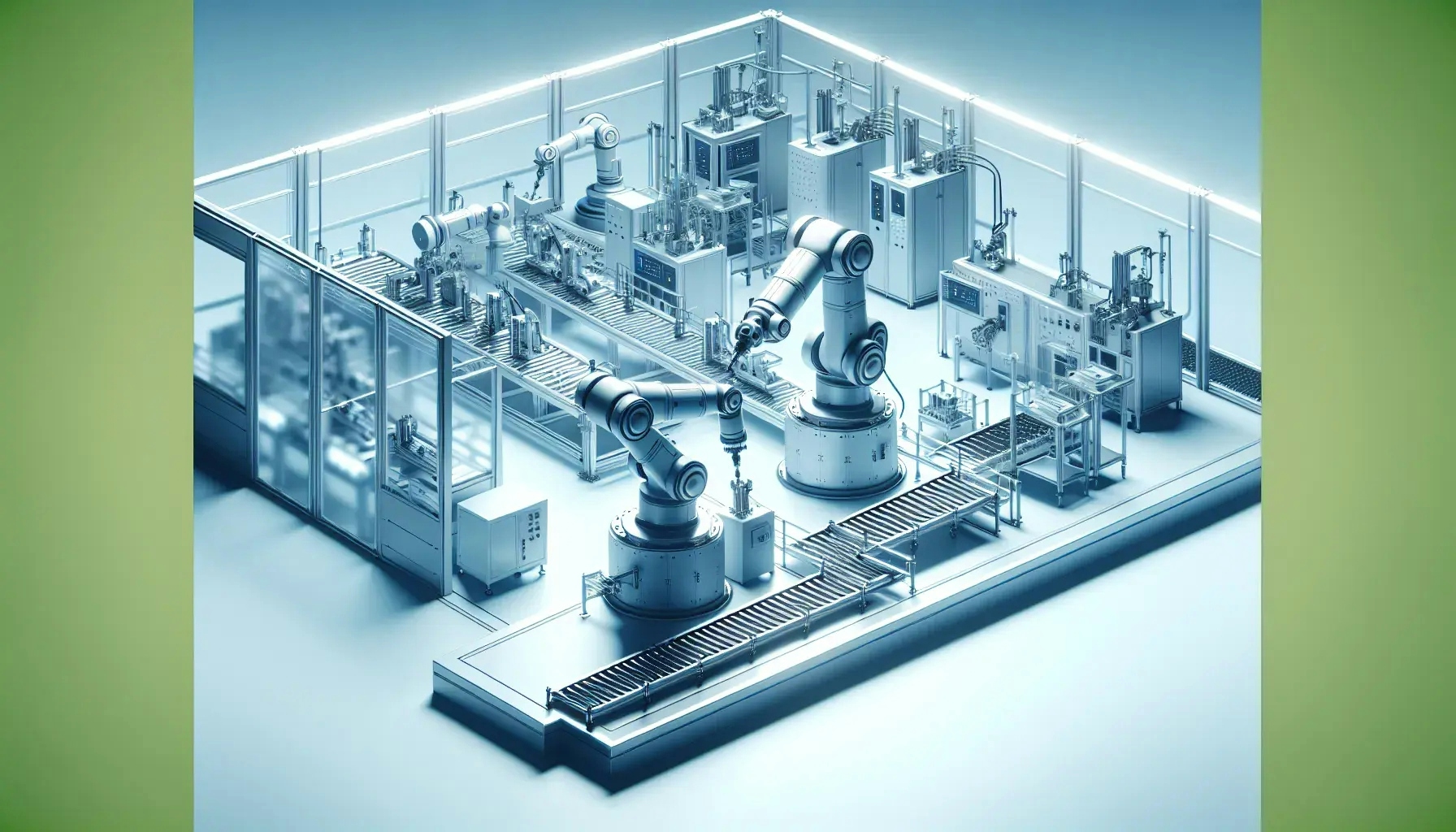The manufacturing sector is undergoing a transformation, thanks to the advent of automation. This blog post will delve into the numerous benefits that automation brings to the manufacturing industry. From increased productivity to improved safety, the advantages are manifold. We will explore these benefits in detail, shedding light on why automation is not just a trend, but a necessity for modern manufacturing.
Boosting Productivity with Automation
Automation plays a pivotal role in enhancing productivity in the manufacturing sector. Automated systems can operate around the clock, thereby significantly increasing production output. Unlike human workers, machines do not require breaks, vacations, or sleep. This continuous operation leads to a substantial increase in productivity.
Moreover, automation eliminates the risk of human error, which can often lead to costly mistakes and production delays. Automated systems follow precise instructions and execute tasks with a high degree of accuracy. This precision contributes to the overall efficiency and productivity of the manufacturing process.
Enhancing Quality Assurance through Automation
Automation also plays a crucial role in improving quality assurance in manufacturing. Automated systems can perform detailed inspections and quality checks with a level of precision that is difficult for humans to match. These systems can detect even the smallest defects or deviations from the standard, ensuring that only high-quality products reach the market.
In addition, automation provides consistency in the manufacturing process. Each product is manufactured according to the same specifications, ensuring uniformity in quality. This consistency is particularly important in industries where even minor variations can have significant implications, such as the pharmaceutical and automotive industries.
Improving Worker Safety with Automation
Automation significantly enhances worker safety in the manufacturing sector. Many manufacturing processes involve tasks that are hazardous for humans. By automating these tasks, companies can reduce the risk of accidents and injuries, creating a safer work environment.
Furthermore, automation can perform tasks in environments that are unsafe for humans, such as those involving high temperatures, toxic substances, or heavy machinery. By taking over these hazardous tasks, automation not only protects workers but also increases overall productivity.
Reducing Operational Costs through Automation
Automation can lead to substantial cost savings in the manufacturing sector. While the initial investment in automation technology can be high, the long-term benefits often outweigh these costs. Automated systems can operate more efficiently than human workers, leading to significant savings in labor costs.
Moreover, automation reduces the risk of costly errors and production delays, further contributing to cost savings. Automated systems also require less energy to operate than traditional manufacturing processes, leading to lower energy costs. Overall, automation can significantly reduce operational costs, making it a worthwhile investment for many manufacturers.
Facilitating Innovation with Automation
Automation not only improves existing manufacturing processes but also paves the way for innovation. With automation, manufacturers can experiment with new production methods and materials, leading to the development of innovative products.
Automation also enables manufacturers to customize products on a large scale. By automating the customization process, manufacturers can offer a wider range of products to meet the diverse needs of their customers. This ability to innovate and customize is a significant competitive advantage in today's rapidly evolving market.
Ensuring Sustainability through Automation
Automation can also contribute to sustainability in the manufacturing sector. Automated systems often use less energy than traditional manufacturing processes, reducing the industry's carbon footprint. Moreover, automation can minimize waste by optimizing resource usage and recycling materials, contributing to a more sustainable manufacturing process.
In addition, automation can help manufacturers comply with environmental regulations. Automated systems can monitor and control emissions, ensuring compliance with environmental standards. By promoting sustainability, automation not only benefits manufacturers but also contributes to the broader goal of environmental conservation.
Embracing the Future with Automation in Manufacturing
The benefits of automation in manufacturing are clear. From boosting productivity and enhancing quality assurance to improving worker safety and reducing operational costs, automation is transforming the manufacturing sector. By embracing automation, manufacturers can stay competitive, innovate, and contribute to a more sustainable future. The future of manufacturing lies in automation, and the benefits are just beginning to unfold.

